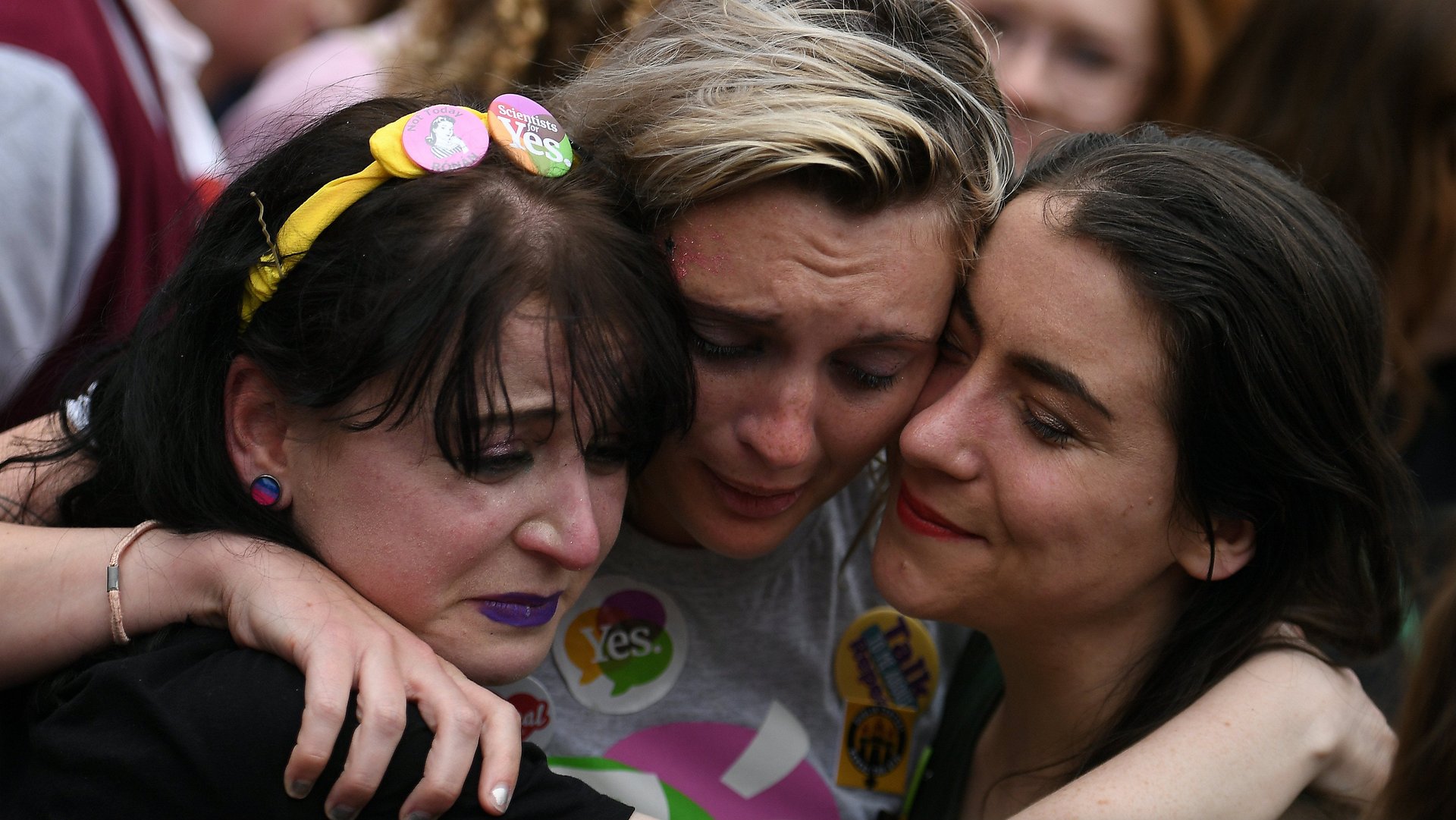Despite Ireland’s abortion referendum, Northern Irish women’s rights are unlikely to change any time soon
The Republic of Ireland overturned the nation’s abortion ban in a historic referendum last week. However, women in Northern Ireland still encounter the strictest abortion rules in the UK, and there is no sign this will change any time soon.


The Republic of Ireland overturned the nation’s abortion ban in a historic referendum last week. However, women in Northern Ireland still encounter the strictest abortion rules in the UK, and there is no sign this will change any time soon.
Abortion has been illegal in Ireland since 1861 and was enshrined into the constitution in 1983 with the 8th amendment, which recognizes that an unborn fetus has a right to life equal to a mother’s, effectively eliminating all abortions—even in cases of rape and incest. When Ireland voted overwhelmingly to repeal the 8th amendment, prime minister Leo Varadkar heralded the nation’s “quiet revolution.”
The UK’s women and equalities minister Penny Mordaunt said the referendum gave “hope” to those in Northern Ireland. Though the UK legalized abortion in 1967, its law was not extended to Northern Ireland, which is part of the UK. The only times women are able to get abortions in Northern Ireland is when there is a risk to the mother’s life, or a permanent or serious risk to her physical or mental health.
There are main three reasons why Northern Ireland is unlikely to make any changes toward its stance on abortion any time soon.
Northern Ireland has not had a working devolved government in almost 18 months, after several rounds of talks between the Democratic Unionist (DUP) and Sinn Féin parties broke down. DUP leader Arlene Foster has said that Ireland’s referendum has no bearing on Northern Ireland, and any changes to the law would have to be debated in the Northern Ireland Assembly. So a debate, let alone a law change, won’t be happening in the foreseeable future.
Even if a debate did happen, the DUP has been the linchpin in halting the extension of abortion rights to Northern Ireland, and takes a hardline view of same-sex marriage.
Meanwhile, UK prime minister Theresa May is unlikely to intervene. After her disastrous snap election, resulting in her Conservative party hemorrhaging seats, she has become dependent on DUP’s support to prop up her party in parliament. May has already made it clear she’s not getting involved despite increased pressure to act. Her spokesperson said in a statement that it’s a matter for Northern Ireland to decide. May’s government took a similar stance when it was asked to get involved with Northern Ireland’s block on same-sex marriage.